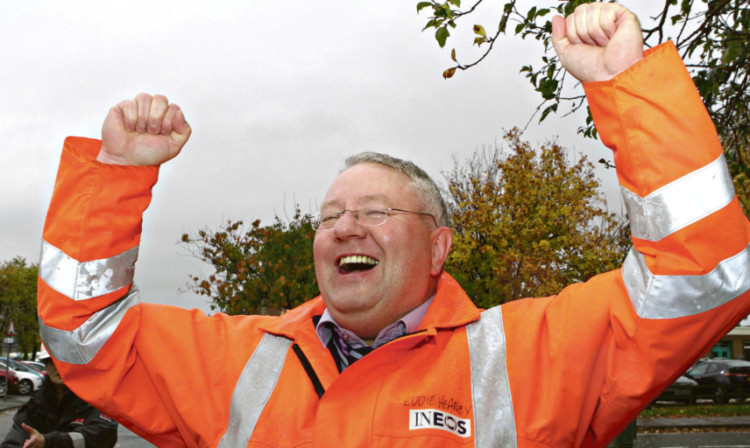
Unions could be irreversibly damaged by the U-turn at Grangemouth, experts warned last night as the plant began returning to normality.
In a turbulent week, where Unite were forced into humiliating concessions to reopen the facility, there were claims public confidence in unions had been badly shaken.
Academics and politicians said the next battle Unite picks will be crucial to its survival. They also raised fears the union’s position in Grangemouth could be wrecked for good.
The warnings came as it emerged the deal to save Grangemouth wasn’t make-or-break and the Scottish Government had another company waiting in the wings to step in.
Industrial relations expert Professor Gregor Gall said: “The public’s opinion of unions has suffered. The fight means some members of the public will no longer see unions as being effective. From that you could be facing a scenario where it affects their recruitment and membership.
He added: “Forty years ago, polls used to suggest people saw unions as being bad because they caused problems. I think if you were to do the same poll today it would show that people didn’t see unions as being bad, merely weak.
“There is no question Unite has suffered a bloody nose but I don’t think it’s broken. Their major difficulty in this fight was the idiosyncratic nature of their adversary there aren’t many companies across the UK as confrontational and bloody-minded as Ineos. They played a high-risk game and lost.
“If other companies were to treat their workforce like this, say for example Tesco, there could be a consumer backlash, but Ineos don’t need to worry about that. That’s why they can take such a high-handed manner.”
The University of Bradford academic was speaking 48 hours after a deal was struck to keep the petrochemical plant open. Ineos had announced on Wednesday that the site was to close, with the loss of 800 jobs, after Unite members refused to sign up to the company’s survival plan. But the decision was reversed after the union caved in and agreed to Ineos’s conditions.
Prof. Roger Seifert, a lecturer in Industrial Relations at the University of Wolverhampton, warned the climbdown could have huge ramifications.
He said: “Unions have changed over the years and lost some of their power. And there has been one major reason for that. With the disappearance of big industry they’ve lost their mass numbers and, with that, power and strength.
“Instead of having the industrial muscle they have to increasingly rely on their political powers through the Labour Party instead. My fear is the next time they come up against Ineos in Grangemouth they’ll have no cards left to play and will be at the company’s mercy. Ineos has shown they’re willing to change the playing field quite quickly.”
He added: “Unite is a strong union and quite comfortable but this has been a significant retreat. However, Unite might even see this as a victory of sorts, recovering from a tough position. That’s not to say it’s not been damaging.”
Councillor Dennis Goldie, who is the director of economic development for Falkirk Council and a Unite member, warned the Grangemouth crisis could have a serious effect on union membership.
He said: “I don’t think we’ll face a situation like this again. The whole dispute was badly handled by the unions and management. It was like going back to the 1970s.”
Pat Rafferty of Unite responded: “We will learn lessons from this but we learn lessons from all negotiations we are involved in. Unions still have a vital part to play in 2013 and the future. You can’t base things on the outcome of one dispute.”
Last night a source close to the deal to save Grangemouth told The Sunday Post contingency plans were in place if Ineos chose to walk away.
He said: “It wasn’t ideal but it would have ensured a future for the plant.”

Enjoy the convenience of having The Sunday Post delivered as a digital ePaper straight to your smartphone, tablet or computer.
Subscribe for only £5.49 a month and enjoy all the benefits of the printed paper as a digital replica.
Subscribe